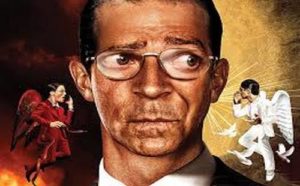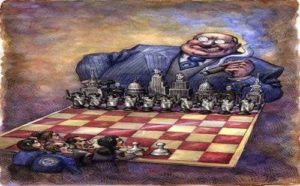Dishonesty is reproved in Scripture. God does not accept a Business or Business person who “practices deceit” (Psalm 101:7), and Jeremiah 9:5 says of a wicked society, “Everyone deceives his neighbor, and no one speaks the truth; they have taught their tongue to speak lies; they weary themselves committing iniquity.” Speaking the truth, or honesty, is a mark of healthy human interaction.
A Business person who knows the truth but (for whatever reason) says differently is a liar. The Bible emphasizes the importance of making true statements about God. To purposely misrepresent God is a serious offense. A liar is defined, first and foremost, as someone who denies that Jesus is the Christ (1 John 2:22). “Trusting in lies” is consistent with forgetting God (Jeremiah 13:25). And those who claim to know God but contradict Him, add to His words, or refuse to follow or accept His commands are also called liars (1 John 2:4; 5:10; Proverbs 30:6).
Honesty as a character quality is a sign of the Spirit’s work in a person’s soul. God cannot lie (Hebrews 6:18); therefore, His presence in a person gives rise to truthfulness. God’s business people are honest.

FDIC’s list of troubled institutions.
https://www.fdic.gov/bank/individual/failed/banklist.html
The FDIC is often appointed as receiver for failed banks. This page contains useful information for the customers and vendors of these banks. This includes information on the acquiring bank (if applicable), how your accounts and loans are affected, and how vendors can file claims against the receivership.
This list includes banks which have failed since October 1, 2000. To search for banks that failed prior to those on this page, visit this link: Failures and Assistance Transactions
Hoping to avoid another round of unpopular bailouts, financial watchdogs have forced too-big-to-fail banks to make themselves less dangerous by adding lots of capital that safeguards against losses.
But regulators continue to monitor these financial institutions, creating a list of 30 “systemically important” banks that deserve extra scrutiny.
JPMorgan Chase (JPM) sits atop that list of banks that could threaten global stability, according to new rankings published on Tuesday by international regulators.
While JPMorgan has been required to take significant steps to make itself less risky, America’s leading bank has nonetheless gotten much bigger over the past decade.
JPMorgan has amassed an incredible $2.56 trillion in assets. That’s nearly twice as much as at the end of 2006 when the subprime mortgage bubble was beginning to burst. A chunk of JPMorgan’s growth is due to its government-backed rescues of failing Bear Stearns and Washington Mutual.
Bank of America (BAC) and Deutsche Bank are ranked one level below JPMorgan on the “systemically important” list published by the Financial Stability Board. BofA’s asset footprint has soared by 56% since the end of 2006 to $2.28 trillion. Deutsche Bank’s (DB) asset size has increased by 21% over that span, according to FactSet.
It starts with Wells Fargo. Today they’re facing a $1 billion fine for auto and mortgage loan abuses from 2016. Of course, this isn’t the only time they’ve been under the gun.
In 2017, the bank was accused of falsifying records so it could blame borrowers for problems in processing.
That’s not a typo. But the funds aren’t there, and robbing Peter to pay Paul can only last so long.
But while it’s easy to pull examples of unethical activity from Wells Fargo, they aren’t the only one…
Big Banks Facing Legal Trouble Left and Right
In January, JPMorgan Chase decided without warning to stop letting its customers buy cryptocurrencies with credit cards and instead began to treat such purchases as cash advances. As a result, they’re now facing a lawsuit in federal court.
And Bank of America was sued by the FDIC in 2017 for underreporting a key metric that would have altered the risk level for the bank. The bank has already been sued numerous times recently for fraud, misleading investors, and screwing over customers.
Bottom line, since 2012, these 3 big banks have been playing dangerous games with your money.
How to Hedge Against the Risk
As big banks continue their unethical practices, the money you’ve trusted with these banks could be at risk.
Wells Fargo (WFC), which acquired failing Wachovia during the financial crisis, is sitting on $1.93 trillion. That’s up nearly 300% since the end of 2006.
Big banks in China are also growing at a rapid pace. China’s four systemically important banks have more than tripled their asset sizes over the last 10 years, according to S&P Global Market Intelligence. Industrial and Commercial Bank of China (IDCBF) is the world’s largest bank, with $3.76 trillion in assets.That’s up from $1.11 trillion at the end of 2006.
“If and when another crisis hits, the biggest players will be far larger than they were in the last crash,” S&P Global Market Intelligence wrote in a report.
Related: Wells Fargo fires head of consumer lending for misconduct
Of course, not all banks have gotten bigger over the last decade. Citigroup (C), one of the most troubled U.S. banks to survive the last crisis, has held steady at roughly $1.9 trillion in assets. Royal Bank of Scotland (RBS), which remains majority-owned by the U.K. government, has shrunk by three-quarters from its 2007 peak.
Still, out of the 30 too-big-to-fail banks, about three-quarters of them are significantly bigger than a decade ago, according to S&P.
Despite their growing size, big banks are considered much healthier than a decade ago. They’ve raised more than $1.5 trillion in capital since the crisis, giving them vast resources to cushion losses in a future crisis. U.S. banks are considered particularly sturdy given the 2010 Dodd-Frank Wall Street reform law that required banks to raise capital, undergo stress tests and come up with a roadmap for how to safely unwind them.Source
Fraud #Banks #Money #Corruption #Bankers
StevieRay Hansen
Editor, Bankster Crime
MY MISSION IS NOT TO CONVINCE YOU, ONLY TO INFORM…
![]()




